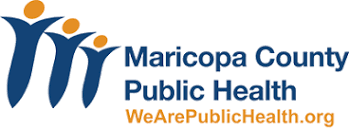The Centers for Medicare & Medicaid Services today announced changes to its enforcement process for the hospital price transparency rule. CMS said it will now automatically impose a civil monetary penalty if hospitals do not send a corrective action plan on time or do not complete the CAP within 45 days.
American Journal of Public Health: Mpox Vaccine Interest Survey Prioritization and Data Flow: Maricopa County, Arizona, July–August 2022
Abstract: With increasing Mpox cases in Maricopa County, Arizona, the county’s health department launched a survey on July 11, 2022, to gather eligibility and contact data and provide clinic information to those interested in JYNNEOS as postexposure prophylaxis (PEP) or expanded postexposure prophylaxis (PEP++).
Survey data were matched to case and vaccination data. Overall, 343 of the 513 respondents (66.9%) who reported close contact with an mpox case patient received PEP and 1712 of the 3379 respondents (50.7%) who were unsure of their contact status received PEP++. This outreach intervention connected potential close contacts unknown to MCDPH with PEP or PEP++. (Am J Public Health. 2023;113(5):504–508. h
What’s Up with AHCCCS’ Funding Problem: Is it A Crisis?
AHCCCS could soon run out of money and would no longer be able to pay their contracted health plans for the services they’ve been providing to Medicaid members. How is that happening, you ask?
About a month ago HB 2624 was signed into law giving AHCCCS expenditure authority for half of the $3B AHCCCS has already received from the feds this fiscal year.
That money is intended to cover formula adjustments in the capitation rates for the Managed Care Organizations who contract with AHCCCS. The bill was passed with the understanding that the remaining 50% would be approved as part of continuing budget negotiations.
That subsequent approval hasn’t happened yet – hence the anxiety about how AHCCCS is going to be able to pay their bills the rest of this fiscal year. Without the remaining expenditure authority approved by the Legislature, AHCCCS will need to delay the May monthly capitation payments to their contracted Managed Care Organizations.
In the interim, this delay means the Agency and the State are unable to meet those payment obligations, resulting in instability for Arizona’s business community, private partners and any local organizations that rely on funding from the MCOs.
Note: This legislative effort just seeks the authority to spend federal monies (i.e., zero dollars from the state general fund).
Will a fix happen before May comes? We’ll see. Right now, it appears the majority in the legislature is content to let AHCCCS’ contractors provide care ‘on the house’. We should know soon.
Free Support Helps Providers Increase Medication Assisted Treatment Capacity
The Arizona Center for Rural Health is offering free support for experienced (and less experienced) Medication Assisted Treatment (MAT) providers to help them increase capacity to provide MAT services. Participation in the Arizona Center for Rural Health’s AzMAT Mentors Program is free and open to Arizona controlled substance prescribers.
If you’re interested or would like to learn more about our program, please visit their website: https://crh.arizona.edu/mentor
The Tamale Bill is Toast but ADHS Can Still Improve the Cottage Food Program by Being More Generous About What Foods Qualify
With the veto of HB2509 it appears that the cottage food program will stay where it is for at least another year. Unless there’s a Strike All bill that expands cottage foods that satisfactorily address the concerns of the Interim ADHS director and/or the Governor, it appears we’ll be in stasis for the program and the 15,000 persons registered in the Cottage Food program.
In the meantime, is there an administrative fix that could responsibly expand the list of foods that participants can prepare that wouldn’t need a statutory change?
The answer is yes – but it would require ADHS Interim Director Cunico to be more generous with the list of ingredients ADHS considers to be acceptable under the existing program. Here’s how Interim Director Cunico could do that if she were so inclined.
See the list of foods/ingredients ADHS allows in the current program
ADHS adopted the FDA Food Code 2017 to govern food production and sale in Arizona. That document defines potentially hazardous food that:
“… require time/temperature control for safety to limit pathogenic microorganism growth or toxin formation… including an animal food that is raw or heat-treated… that is not modified in a way so that they are unable to support pathogenic microorganism growth or toxin formation…”
Determining which ingredients and foods that meet that definition is both an art and science.
There are certain ingredients – shellfish for example – that are clearly potentially hazardous. Many other meats also potentially hazardous – but others the current ADHS cottage food program considers potentially hazardous should more appropriately be called theoretically hazardous. The bottom line is that the current listing of ingredients the department considers acceptable is unnecessarily restrictive and can be expanded without requiring a statutory change.
My point is that ADHS should collaborate with the University of Arizona Food Product and Safety Lab and others to build a more generous menu of ingredients and combination of ingredients they’ll allow in the existing cottage food program. Such a revised list would be unlikely to include tamales, but many other foods could and should qualify.
Whether ADHS Interim Director Cunico is willing to do so is unknown.
Biden’s Executive Order for Child & Elder Care: What Does it Do?
Last week President Biden signed an executive order directing federal agencies to use their existing statutory authority to make child and elder care cheaper and more accessible. The action doesn’t create new law and doesn’t have an appropriation, but it will eventually change the policies, procedures and leverage federal procurement contracts to make child and elder care more accessible.
If there’s no new law or money, how can the EO change things? Here’s how:
The Order tells federal agencies (e.g., HHS, USDA etc.) to find ways to require applicants seeking federal funds to expand access to childcare. This could be similar to the way the US Commerce Department told companies planning to apply for more than $150 million in CHIPS funding (under the $38B CHIPS and Science Act) that they need to provide a plan to provide childcare to their workers in order to qualify for that funding.
Another example is that the new order tells HHS to use existing authority to reduce childcare costs for families using the Child Care and Development Fund. They’ll likely change their federal regulations (via rulemaking) to reduce or eliminate childcare co-payments in the program. Currently, families contribute on a sliding fee scale (the maximum family copay is 7% of family income) but they can lower that.
Another part of the EO tells the Office of Personnel Management to help federal employees afford childcare. They’re supposed to review current childcare subsidies among federal employees and expand federal employee access to childcare services through federal childcare centers or contracted care providers.
There are limits to what executive orders can do – so this isn’t a watershed action by any means. There’s no guarantee that all these initiatives will actually happen, and the timeline for any of these changes remains uncertain. At least it’s something, though.
Healthcare & Transportation Workshop: Tuesday, May 9, 2023: 9am – 3pm
LOCATION: MARICOPA ASSOCIATIONS OF GOVERNMENTS SAGUARO ROOM, SECOND FLOOR, 302 N 1ST AVE #300, PHOENIX, AZ 85003
Age Friendly Arizona and Northern Arizona Council of Governments were selected to host a free statewide technology summit with the National Center for Applied Transit Technology (N-CATT). This summit aims to help healthcare and transportation providers in Arizona identify and support technology projects to improve access to healthcare.
In this first event, transportation and healthcare providers from across Arizona were presented with case studies from around the nation on how these two sectors worked together to improve healthcare access. The Arizona group then held a wide-ranging conversation about healthcare access in Arizona, the challenges faced by both transportation and healthcare providers, and current initiatives to address these challenges.
Throughout these conversations, two general themes were identified as building blocks for additional summit events.
There is a need for enhanced collaboration across multiple sectors across the state:
- There are opportunities to combine and/or align many statewide efforts that can improve patient care and improve efficiencies for transportation providers.
- Through ongoing coordination, there is a great opportunity to build meaningful and mutually beneficial partnerships between healthcare and transportation providers.
There is a great opportunity to pilot projects at the local or regional level and demonstrate replicable success at statewide level:
- By making strategic connections, we can align statewide initiatives with local resources.
- There appears to be interest from diverse funders to support pilots and expansion projects to improve AZ’s healthcare access.
To build off of these themes we are inviting you to attend an in-person workshop on May 9 to dive deeper into the areas below (lunch and free parking will be provided):
- Development of Healthcare and Transportation Statewide Taskforce.
- Build upon efforts to establish Telemedicine Hubs supported by Healthcare Navigators.
- Explore opportunities to better link Healthcare and Transportation communication platforms.
- Identify additional new areas where technology can support healthcare access.
PLEASE REGISTER HERE TO JOIN US IN EXPLORING THESE AREAS ON MAY 9, 2023.
ADHS Seeking Public Comment on Trauma Center Rules
The Arizona Department of Health Services is inviting members of the Arizona Emergency Medical Services and Trauma System community to provide comments on its draft trauma center rules. To view the rulemaking process, proposed rule changes and take the online survey, click here.
Harvard Law School and Policy Clinic: Issue Brief on 2021 State Policy Trends in Cottage Food & Home Kitchen Legislation
Issue Brief on 2021 State Policy Trends in Cottage Food & Home Kitchen Legislation
Abstract: The issue brief details trends across the 51 unique pieces of legislation introduced in 31 states and the District of Columbia that aimed to expand opportunities for cottage food producers and home cooks in 2021.
Trends include expanding the list of allowable foods produced at home, raising or lifting gross sales caps for home-produced goods, ensuring local governments allow home food production, and expanding sales and delivery venues for foods produced at home.
There is a wide variety of cottage food and home kitchen laws across the country. Despite this variety, the trend in new state legislation is quite clear. Whether allowing more categories of foods, raising sales caps, preempting local regulation, or expanding sales and delivery venues, states have been steadily broadening their cottage food and home kitchen allowances.
Growing markets for cottage foods and other home-produced foods has led to economic development and rising numbers of consumers and home cooks able to advocate for these laws. The beneficiaries of these laws are largely women, immigrants, and people of color.







